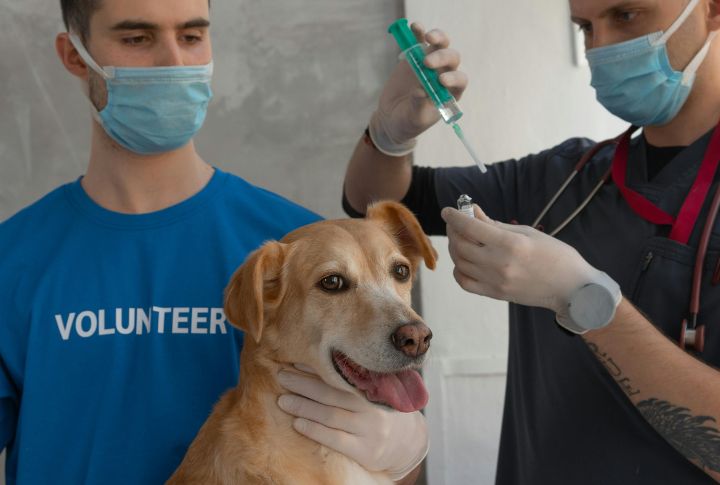Dos And Don’ts Of Using Imodium For Your Dog

When your dog has diarrhea, it’s tempting to use Imodium, which is often used as a common remedy for humans. However, while it can help people, it may not be the safest option for dogs. Before choosing this route, it is paramount to understand the benefits, risks, and proper dosage for your pet.
Imodium for Dogs

While it might seem like an easy fix for a dog’s diarrhea, it can be risky, particularly for certain breeds. Some dogs, especially herding breeds like Australian Shepherds and Collies, carry a gene mutation known as MDR1 that makes them highly sensitive to loperamide, which happens to be one of the active ingredients in Imodium.
Causes of Diarrhea in Dogs

Dogs can get diarrhea from environmental changes, sudden diet shifts, or stress. It usually clears up on its own quickly. But if bacteria, viruses, or parasites are the underlying cause of diarrhea, this medicine isn’t a good choice. It can keep these harmful agents in your dog’s system longer, which might make things worse.
Proper Dosage of Imodium

Here’s what you need to know about treating your dog with Imodium. It typically comes in 2 mg tablets, which work well for medium and large dogs. However, the dosage varies depending on the breed. The oral liquid might be better if you have a smaller breed.
Administering Imodium to Your Dog

Giving Imodium to your dog can be a challenge, but a few tricks can make it easier. For tablets, wrap the pill in something irresistible, like a small piece of chicken or even a bit of bread. Just make sure the pill is well hidden to avoid any fuss.
Risks of Overdose

If your vet has given the green light to use Imodium, getting the dosage right is important. Too much could lead to sedation or other complications, while too little might not be effective. Stick to the prescribed dosage, and don’t get tempted to give a little extra, no matter how severe the issue is.
Considerations for Pregnant Dogs and Puppies

Just like pregnant women have a list of things to avoid, pregnant or nursing dogs should steer clear of Imodium. Puppies under six weeks old are also on the no-go list. Their bodies are still developing, and the drug could have unintended consequences.
Toy Breeds

These small dogs process drugs differently than larger dogs. What’s considered a safer dose for a bigger breed can be too strong and potentially harmful for a smaller one. Since toy breeds have more sensitive systems, it’s essential to be cautious with any medication.
Impact of Medical History

Dogs with a history of allergic reactions to medications or those with pre-existing conditions should be monitored more closely if Imodium is used. Always provide your vet with a complete medical history before starting any new medication.
Risks of Using Imodium

Imodium isn’t always the best option for treating diarrhea, especially due to infections or parasites. It can slow down the removal of harmful agents from your dog’s body, possibly causing more problems. Always determine the cause of the diarrhea and check with your vet before using Imodium.
Potential Interactions

If your dog is already on medication, introducing Imodium could create unwanted interactions. Some antibiotics, antifungals, and heart medications, among others, don’t mix well with loperamide. Think of it as mixing vinegar with baking soda—things can get messy quickly.
Possible Side Effects

Even when Imodium seems like the right choice, be aware of potential side effects. These can include feeling sedated or drowsy, experiencing bloating, and constipation. In rare cases, Imodium usage has been linked to the development of pancreatitis, a serious inflammation of the pancreas.
Safer Alternatives

Before you jump to medications, consider starting with a bland diet and probiotics. Think of it as giving your dog’s digestive system a little vacation; plain boiled chicken and rice are easy on the stomach and can help reset things naturally.
Restoring Digestive Balance

Probiotics help restore the right balance of bacteria in your dog’s gut. These good bacteria are essential for keeping your dog’s digestion healthy and working well. By adding these friendly bacteria, probiotics can ease your dog’s upset stomach and help with digestion.
Monitoring During Use

Keep a close watch on your dog while it’s taking Imodium. Look for any changes in its behavior or health, like unusual tiredness, loss of appetite, or strange signs. Catching problems early helps you take action quickly and ensures your dog stays healthy and comfortable during treatment.
When to Contact the Vet

Most cases of diarrhea will resolve on their own with a bit of care. However, if the symptoms persist for more than 48 hours, it could indicate an underlying serious condition. In such circumstances, seeking medical assistance is crucial for proper evaluation and treatment.





